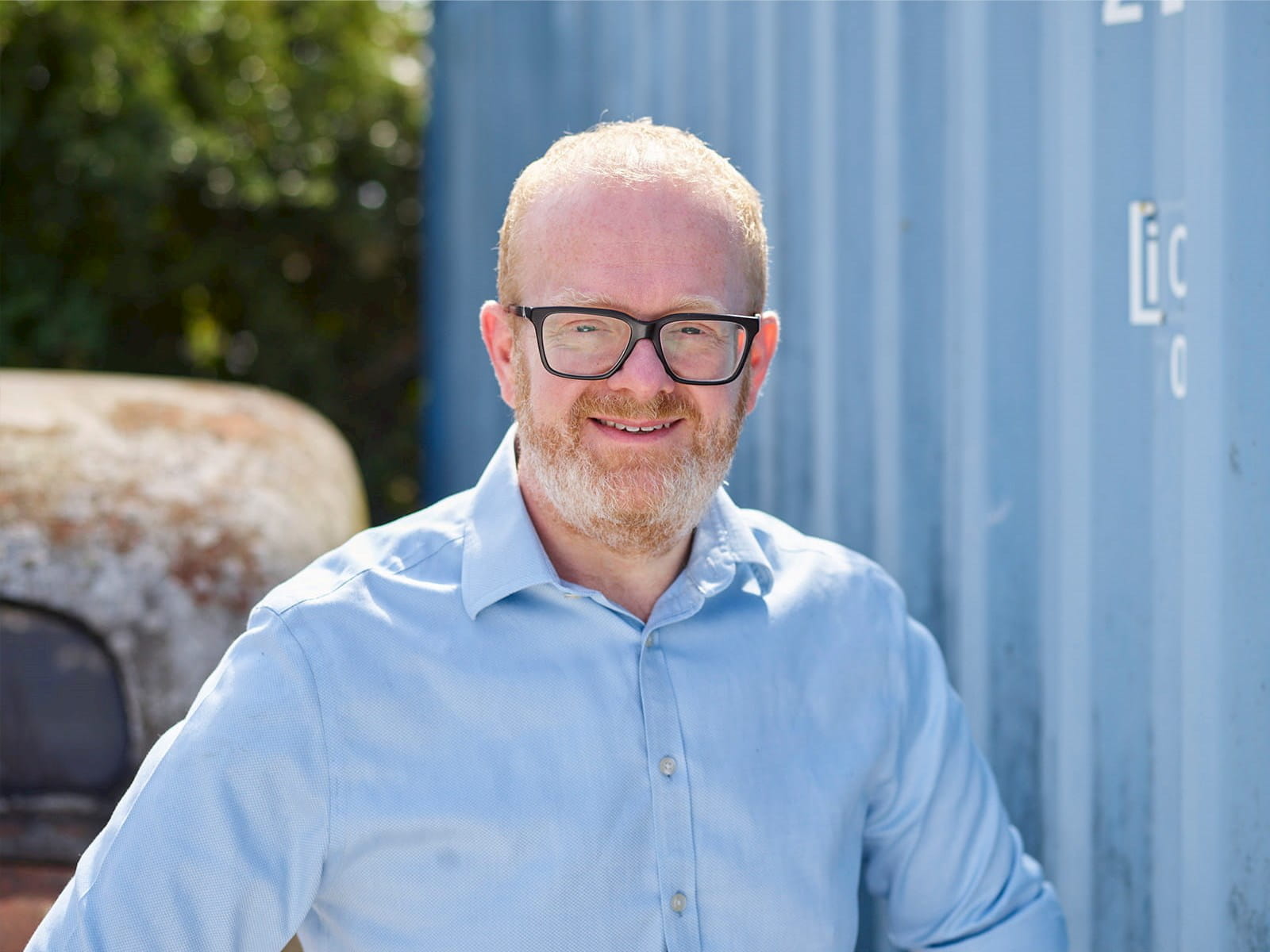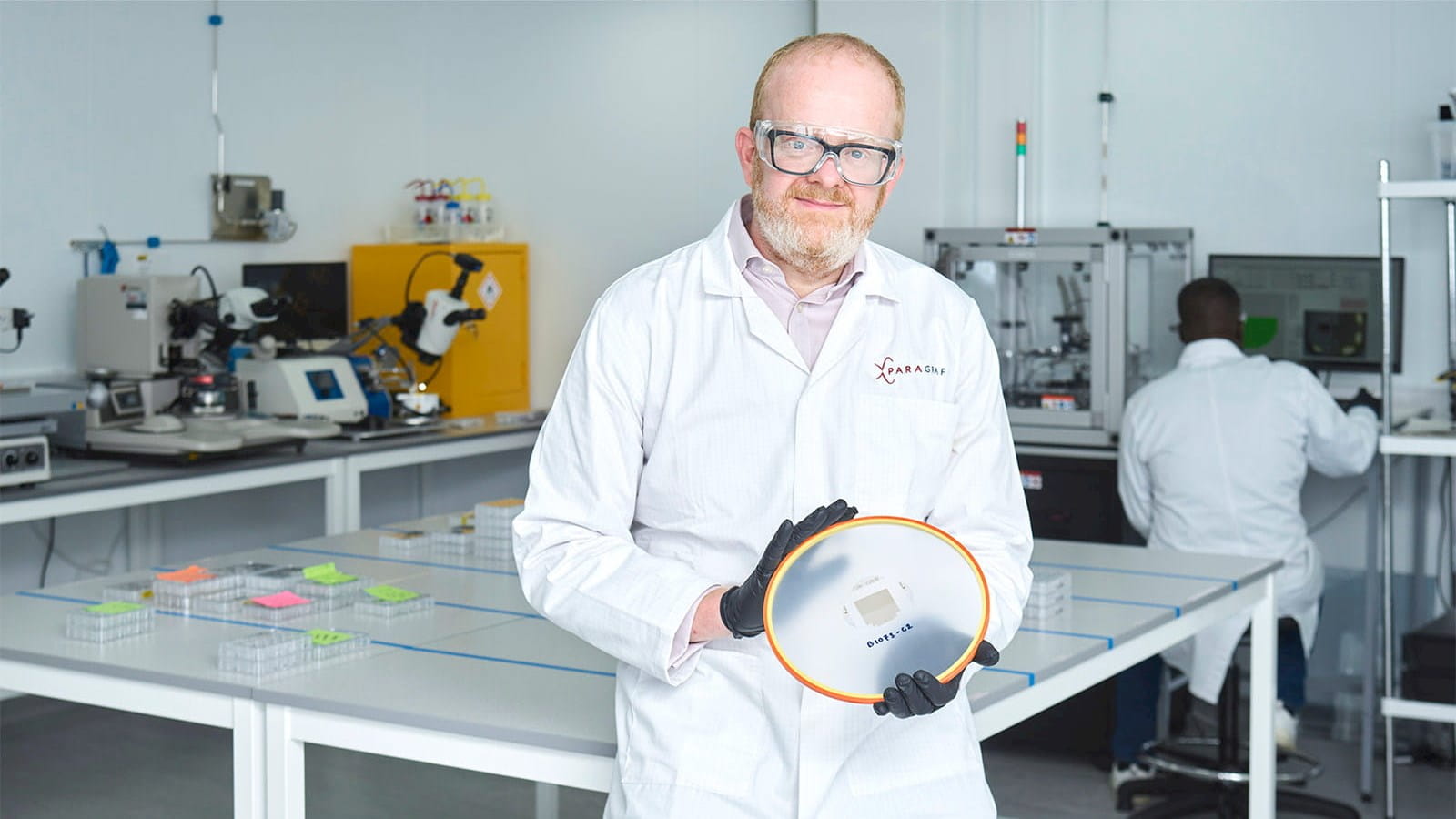Cambridgeshire-based Paragraf is pioneering new graphene technology and should be in the vanguard of UK economic success – but moving from promising start-up to a scale-up that makes a real difference to the economy is harder than it should be.
Graphene-based electronic devices manufacturer Paragraf is a good example of a home-grown manufacturing success story. Founded as a commercial entity in 2017, the Cambridge University spin-out today numbers over 130 employees, with its growth fuelled by a series of successful fundraising rounds. However, its path to growth also highlights some of the common challenges manufacturing businesses face when scaling up.
Paragraf is currently focused on making the transition from a R&D-led business to becoming a fully blown manufacturing enterprise. In early 2023, it took possession of a new manufacturing facility in Huntingdon, Cambridgeshire, which will play a crucial role in increasing its productive capacity. “The factory is the gateway to us realising the commercial opportunities we have,” explains Charles Platts ACA, CFO of Paragraf and Chair of ICAEW’s Global Trade Community Advisory Group. “It gives us the capacity to make the volumes that we need; without that, we don’t have a business.”
However, such an undertaking is not a straightforward exercise. One of the first challenges was finding a suitable site. There are few ready-made manufacturing facilities available in the UK, and building a brand new facility adds years to timeframes, which are already extensive given the long lead time needed to order and install specialist equipment. Paragraf’s search took it to several locations, but ultimately it decided to remain in Cambridgeshire.
“We looked at the North East, where there is potentially levelling up funding. However, we realised having a factory 300 miles away from the business would mean that money would be used up very quickly; after two years there was no net gain,” Platts explains.

It chose a warehouse facility which met its specific spatial requirements for installing cleanrooms, but it has had to pay for substantial upgrades to the power supply because, as a manufacturing company, it requires significantly more power than a storage facility. Planning has also been a challenge, with sign-off on starting work to upgrade the facility taking several months and involving numerous parties.
Beyond challenges with the new factory, Platts also points to skill shortages as a brake on scaling up: “Our R&D work needs people with PhDs coming out of university, but when we get into manufacturing, that need shifts to manufacturing technicians and there aren’t many of them in the UK. We have had to battle our way through the visa process several times to bring in people with the necessary skills.” Paragraf believes more can be done to offer more skilled worker visas as a short-term solution and to encourage an educational focus on STEM subjects and practical skills needed for manufacturing.
“What you want is those resources to come from the UK. So we need a focus on education in STEM subjects, but also on teaching some of those practical skills that people might use going into manufacturing. There is also a job to do in terms of making manufacturing look like an attractive career for people,” Platts says.
Finally, there are also difficulties in accessing funding for businesses that are scaling up. “The UK is great at spinning out and starting businesses, but there is a gap for scale-up investments. We’re having to cast the net very wide, and the investment will likely come from overseas; we are working with international advisors for help on this,” states Platts.
There is also the question of the degree of government funding available: “In other countries, there’s quite a lot of government funding available in the semi-conductor space. I’m not saying there should be automatic government handouts, but it is a competitive element. I can’t turn around to our Board and say we are going to ignore that. That’s probably the biggest difference when you’re looking at international funding compared to funding in the UK – the level of government support that’s available.”
Paragraf believes significant improvements can be made with a more defined vision and a strategic UK manufacturing plan. “If there’s a genuine belief that we need manufacturing in the UK, there needs to be a clear manufacturing strategy as to how that’s actually going to be achieved. So, ensuring an infrastructure for manufacturing businesses, improving planning and travel networks, and improving funding for scaling businesses. Often, at this stage, ownership goes overseas and the whole operation moves abroad, which is not good for the long-term future of the UK economy,” Platts concludes.
- Navigating a changing world of trade
- How to reinvigorate the UK’s international trade performance
- International trade: How Ramsden International reinvented its business model after Brexit
- Making the most of international markets: From the glens to graphene
- From the glens to graphene: Getting the most from international markets

